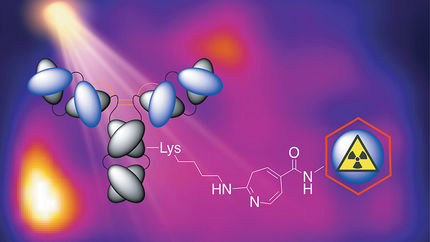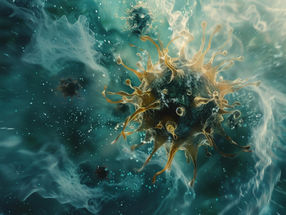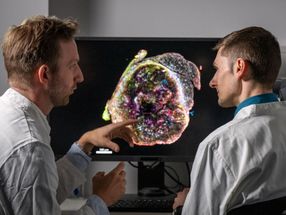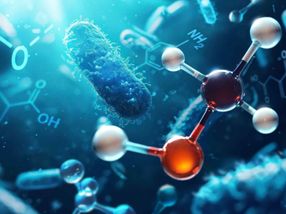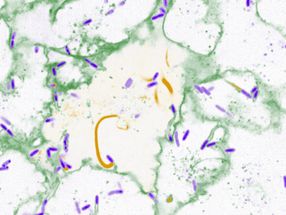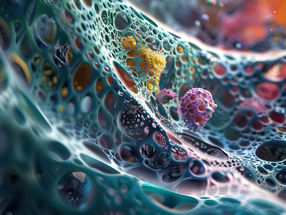First cancer immunotherapy for dogs developed
Nearly every second dog develops cancer from the age of ten years onward. A few therapies derived from human medicine are available for dogs. A very successful form of therapy by which antibodies inhibit tumor growth has not been available for animals so far. Scientists at the inter-university Messerli Research Institute of the Vetmeduni Vienna, the Medical University of Vienna, and the University of Vienna have developed, for the first time, antibodies to treat cancer in dogs. The scientists published their research data in Molecular Cancer Therapeutics.
As in humans, cancers in dogs have complex causes. The interaction of the environment, food, and genetic disposition are the most well known factors. Today nearly all methods of human medicine are basically available for dogs with cancer, but this was not true of cancer immunotherapy so far.
So-called cancer immunotherapy - which is the treatment of tumors by the use of antibodies - has been established and used very successfully in human medicine for about 20 years. Since cancer cells bear very specific antigens on the surface, the corresponding antibodies bind to these molecules and thus inhibit tumor growth. The mechanism that becomes effective is a destructive signal sent by the antibody to the inside of the cancer cell and initiates its death. In a second mechanism, the immune system of the patient also destroys the "marked" tumor in a more efficient way.
Josef Singer and Judith Fazekas, both lead authors of the study, discovered that a receptor frequently found on human tumor cells (epidermal growth factor receptor or EGFR) is nearly 100 percent identical with the EGF receptor in dogs. In human medicine EGFR is frequently used as the target of cancer immunotherapy because many cancer cells bear this receptor on their surface. The so-called anti-EGFR antibody binds to cancer cells and thus triggers the destruction of the cells. "Due to the high similarity of the receptor in humans and dogs, this type of therapy should work well in dogs too," the scientists say. The binding site of the antibody to EGFR in man and dogs differs only in respect of four amino acids.
To ensure best possible binding of the antibody to cancer cells in dogs, the human antibody had to be trimmed to "dog" in the laboratory. In human medicine this process is known as the "humanization" of an antibody. The antibody originally produced in the mouse has to be adjusted to the species for which it is used. Singer and Fazekas replaced the corresponding elements in the “humanized” antibody with elements from the dog. In experiments on dog cancer cells in the laboratory it was found that the newly developed antibodies did, in fact, bind to canine cancer cells with greater specificity.
The head of the study, Professor Erika Jensen-Jarolim, explains as follows: "We expect dogs to tolerate these anti-cancer antibodies well. This will be investigated in clinical studies in the future and is expected to greatly improve the treatment as well as the diagnosis of cancer in dogs."
Original publication
Josef Singer, Judit Fazekas, Wei Wang, Marlene Weichselbaumer, Miroslawa Matz, Alexander Mader, Willibald Steinfellner, Sarah Meitz, et al. ; „Generation of a Canine Anti-EGFR (ErbB-1) Antibody for Passive Immunotherapy in Dog Cancer Patients."; Journal Molecular Cancer Therapeutics.
Other news from the department science
Most read news
More news from our other portals
See the theme worlds for related content
Topic world Antibodies
Antibodies are specialized molecules of our immune system that can specifically recognize and neutralize pathogens or foreign substances. Antibody research in biotech and pharma has recognized this natural defense potential and is working intensively to make it therapeutically useful. From monoclonal antibodies used against cancer or autoimmune diseases to antibody-drug conjugates that specifically transport drugs to disease cells - the possibilities are enormous

Topic world Antibodies
Antibodies are specialized molecules of our immune system that can specifically recognize and neutralize pathogens or foreign substances. Antibody research in biotech and pharma has recognized this natural defense potential and is working intensively to make it therapeutically useful. From monoclonal antibodies used against cancer or autoimmune diseases to antibody-drug conjugates that specifically transport drugs to disease cells - the possibilities are enormous
